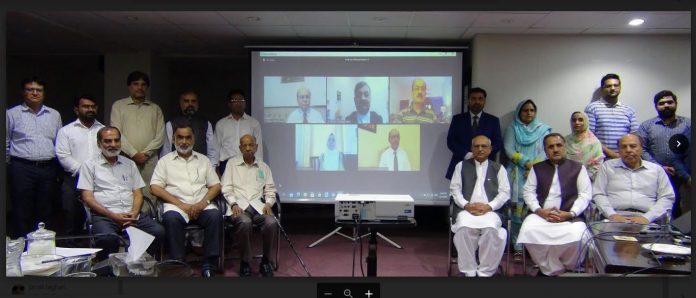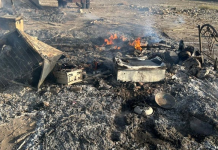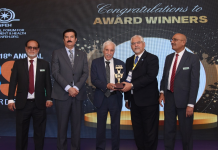DNA
ISLAMABAD, SEPT 18 – Senior academics and experts, including four vice chancellors of different universities from across Pakistan have termed unchecked governance deficit and institutional deterioration of education sector, especially higher education, in the country as two of the biggest domestic challenges, cautioning that failure in addressing these issues can prove extremely destructive for the nation.
These apprehensions were shared at the annual meeting of the National Academic Council (NAC) of Institute of Policy Studies (IPS), Islamabad. The session was chaired by Executive President IPS Khalid Rahman and addressed by Ambassador (r) Shamshad Ahmed Khan, Syed Abu Ahmad Akif, former federal secretary, Dr Anis Ahmad, vice chancellor, Riphah International University, Prof Dr Anwar-ul-Hassan Gilani, vice chancellor, University of Haripur, Dr Fateh Muhammad Burfat, vice chancellor, University of Sindh, Dr Syed Tahir Hijazi, vice chancellor, Muslim Youth University, Dr Syed M Junaid Zaidi, executive director, COMSATS University, Dr Adnan Sarwar Khan, former dean of social sciences, University of Peshawar, Dr Abdul Rauf Rafiqui, director, Abdul Samad Khan Achakzai Chair, University of Balochistan, Dr Noreen Saher, chairperson, Department of Anthropology, International Islamic University, Islamabad, Fasih Uddin, former chief economist of Pakistan, Mirza Hamid Hasan, former federal secretary, Air Cdr (r) Khalid Iqbal, and Amanullah Khan, former president, Rawalpindi Chamber of Commerce and Industry.
It’s worth mentioning here that IPS-NAC is a supervisory consultative body comprising renowned intellectuals, scholars, academicians and field experts from across Pakistan brought together on one platform to deliberate matters of national significance and in turn help steer the Institute’s research work with their guidance.
The speakers raised various governance-related issues prevailing in the country, maintaining that the government’s machinery depends heavily on bureaucracy and hence it was important for the latter to play their part positively. They also suggested revisiting the colonial structure of the bureaucracy and reforming it according to the contemporary best practices. They believed that the country’s situation cannot improve unless the bureaucracy begins to understand and play its role diligently.
Dr Burfat directed attention towards the deteriorating condition of government educational institutions, especially universities, due to lack of resources and political appointments creating overemployment over the years. Speaking about the importance of strengthening government institutions and allowing them to work as per their mandate without any interference, Dr Burfat revealed that political intervention in universities after the 18th constitutional amendment has increased manifold and was affecting their autonomy and academic standard considerably.
Contemplating the prevailing deficiencies in the country’s education system, Dr Gilani pointed out that a good education system should be aimed at instilling confidence and creativity in students and shaping their character. However, he said the current system was missing out on this critical part comprehensively.
Dr Saher also spoke on similar lines, stating that curriculum designing the world over revolved around three important features; information, skills and attitude building. In Pakistan, however, the focus was primarily on the informational aspect, ignoring the skills and attitude building part almost in its entirety. The result of this approach, according to her, was a lot well versed in information but lacking the skills as well as the attitude to excel professionally.
Fasih Uddin and Dr Zaidi laid a lot of stress on science and technological education, calling it the need of the hour, especially in the wake of challenges posed by the Fourth Industrial Revolution.
Dr Sarwar, on the other hand, was wary of over-dependence of students on technology which, according to him, could deteriorate their thinking and self-learning capacity, and hence he suggested adopting a balanced approach.
Hamid Hasan talked about critically reviewing the West-influenced mentality where every academic endeavor was evaluated as per the Western paradigm while every locally generated discourse or indigenously produced narrative was looked down as mediocre in nature.
Dr Anis called for forging a proactive instead of a reactive mindset when it comes to research and academic endeavors. He stressed that our beliefs and culture had their own set of positives and strengths, and hence one should encourage local scholarship that is pursuing any discourse with an indigenous approach.
















